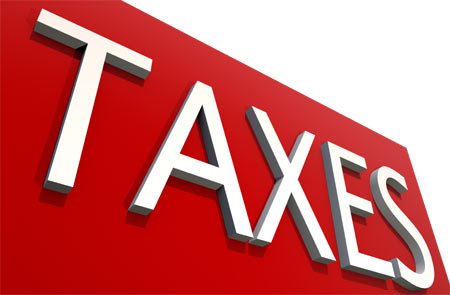START YOUR YEAR RIGHT: SMALL BUSINESS SELF-ASSESSMENT TIPS
Published by Gbaf News
Posted on January 13, 2015
5 min readLast updated: January 22, 2026

Published by Gbaf News
Posted on January 13, 2015
5 min readLast updated: January 22, 2026

As we begin a new year, thoughts naturally turn to tax and the looming deadline for filing online self-assessment tax returns at midnight on January 31.
In 2013, 23,059 people beat the deadline by submitting their self-assessment returns over the Christmas period. However unpleasant a task it may be, there are some very good reasons not to put off filing self-assessment tax returns.
Calling in the cavalry can, of course, help. Paul Bulpitt, director of accountancy at The Wow Company says those looking to an accountant should still be prepared to put the work in if they’ve left it until now to start. He said: “The later you leave it, the harder it will be to file your return in time. It will make the entire process of meeting the deadline much easier if all the relevant financial records are collected together as soon as is possible.”
According to Gary Turner, MD at cloud accounting specialists Xero, the biggest risk is that people who leave it to the last minute could face the severe financial shock of having to pay far more than they anticipated.
Top tax tips for 2015:
Check whether you are liable for self-assessment: Start by going online to the Government’s website Gov.uk to find out about whether you need to file a self-assessment tax return. In particular, go to https://www.gov.uk/self-assessment-tax-returns/who-must-send-a-tax-return. The website is easy to use and gives a full explanation of self-assessment. There are help sheets for the different categories of people who have to file self-assessment returns. It will also direct you to the HMRC website where you file your return. Broadly speaking, anyone who has income other than PAYE, people earning more than £100,000 per year, the self-employed, business partners, and company directors have to file self-assessment returns.
Check your post to find your personal self-assessment code: If you need to file a self-assessment tax return, you should have received a letter from HMRC with a personal code – the Unique Taxpayer Reference. You will need this code to file your return online. If an email arrives that appears to be from HMRC, it will almost certainly be a hoax. HMRC only make contact through the post.
Be as thorough as you can: Make sure your have all the right receipts for your return, along with statements of account, interest or dividend payments. Remember that interest from accounts can be liable for tax and each year HMRC investigates the affairs of people who have not declared interest or dividends. Anyone who rents out their home must also declare the income on their self-assessment form, something easy to overlook if a new relationship is formed and a former residence let out.
Don’t leave it until the last minute: Apart from the possibility of being surprised by a high tax bill, you also run the risk of a £100 penalty if you fail to file your return by the deadline, even if you have nothing to pay. If you are more than three months late, the penalty increases further. One of the pitfalls of leaving it until January to file your return is that you may find the HMRC website is running very slowly because of all the other people trying to do the same as you.
Be patient: January is a very busy time for HMRC and their staff are only doing their jobs. If you need to contact them by phone, you will not get results by being aggressive or too obvious about your frustration. Be prepared to wait ever longer as the deadline approaches. The best solution is to organise your affairs so that you can file your return without having to speak to anyone at HMRC.
Get help from an accountant: If you need help, ask a professional, who will save you time and money. What you pay in fees will easily be covered by the tax you save and if you are using an online accounting solution, you will not have to waste time and effort on meetings and paperwork. An accountant can work out the allowances you are entitled to, so you pay no more than the right amount of tax. Allowances could cover transport expenses, the cost of tools or of using your home as an office.
Think beyond January 31 to the end of the tax year on April 5: There is still time to use up ISA savings allowances before the financial year ends on April 5. The same goes for pension contributions allowances. Almost everyone’s pension is now underfunded, so this is definitely a topic you should consider.
Think ahead to next year’s self-assessment deadline on January 31, 2016: It is a good idea to set up a reminder to yourself at the end of your summer holiday so you can start considering what you will need for next year’s tax return. It is certainly worth putting all your finances in order and declaring all additional income, because being investigated by HMRC is not a pleasant experience.
Explore more articles in the Business category











